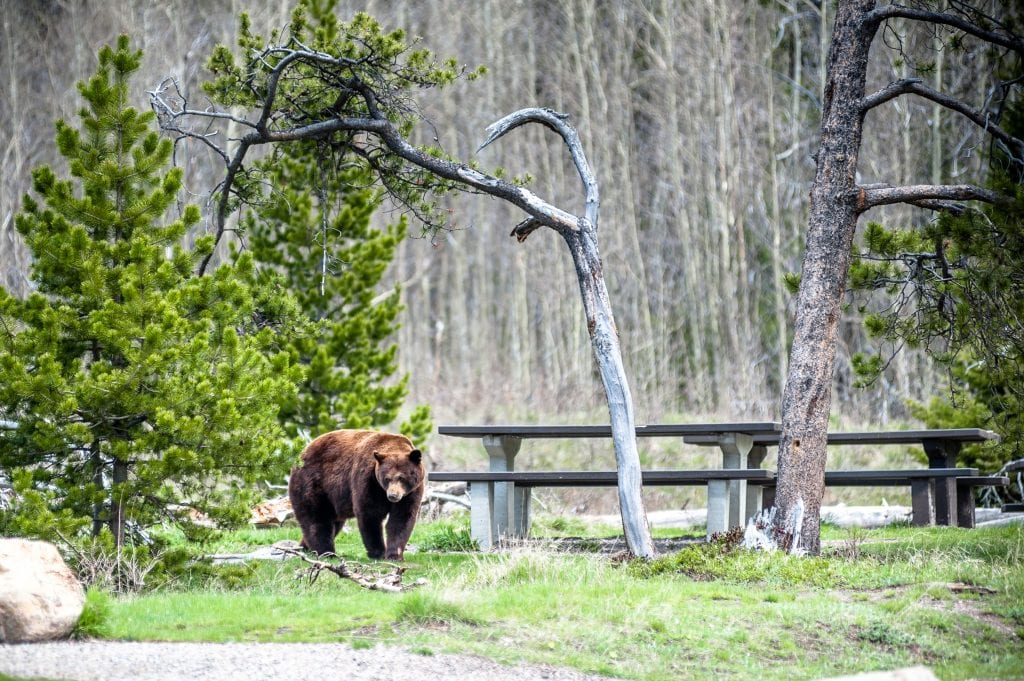
I went on my first backpacking trip when I was 19, and since then, solo backpacking has been an important part of my life. It does shock people sometimes, though. One of the first things people ask is, “what about bears?”
On the other end of the spectrum, I hear people talking about their bad habits and saying, “I’ve been doing it like this for years, and I’ve never had a problem.”
Both these mind frames can really ruin a trip. On one hand, the fear of bears can hold people back from immersing themselves in nature, but on the other hand, being too relaxed about it can result in disaster. We need to put in place things that result in avoiding bear problems.
What we really need to bear in mind (pun intended) is that bears think a whole lot like us. We have similar food preferences, we’re both curious, neither of us are great hunters, and we’re both pretty darn smart. It makes sense that we run into each other so often in nature. It’s helpful to keep those similarities in mind when considering avoiding bear problems and dangerous situations.
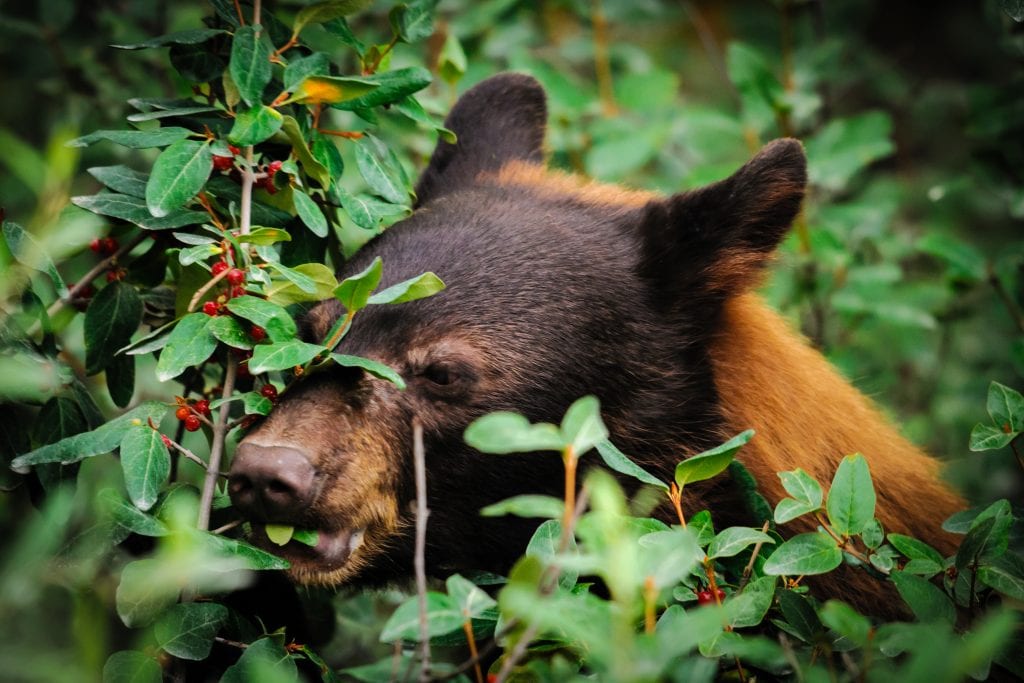
On the Trail
Like us, bears want to avoid other large predators. It’s their instinct to avoid us, and knowing where we are will allow them to do just that. They don’t like being surprised, and running into a potentially harmful creature like a human may trigger some aggressive behaviour.
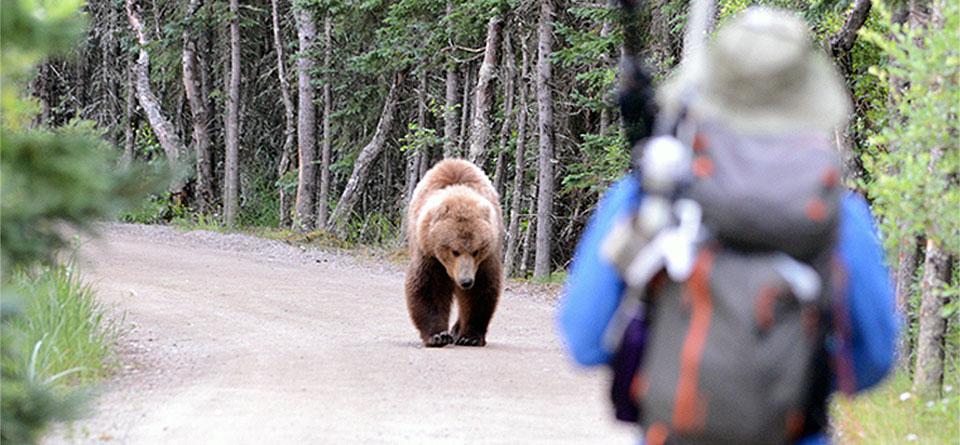
A lot of people like to bring bear bells with them so that they are constantly making noise. However, I’ve heard of accounts of bears coming to inspect the curious noise. This is unlikely to create an aggressive encounter, but it’s something to keep in mind. The main reason I don’t use bear bells is that it stops me from hearing my surroundings. Aside from the fact that I love the peace and quiet of the forest, I feel a lot more comfortable if I can hear a large creature moving around in the underbrush. Instead, I opt for yelling periodically – something like “Hey bear ” or “Way O.” This also lets other people on the trail know that I am human. All a part of avoiding bear problems as I go about my business.
Avoiding Bear Problems in Camp
Bears usually wander into camp because they’re hungry – no, not for human flesh, but for whatever delicious meal the humans have been cooking up. Bears have very similar food preferences to us, though they are significantly less picky. This means that you have to watch out for things like your garbage and sunscreen too. To keep your camp safe, follow these three rules.
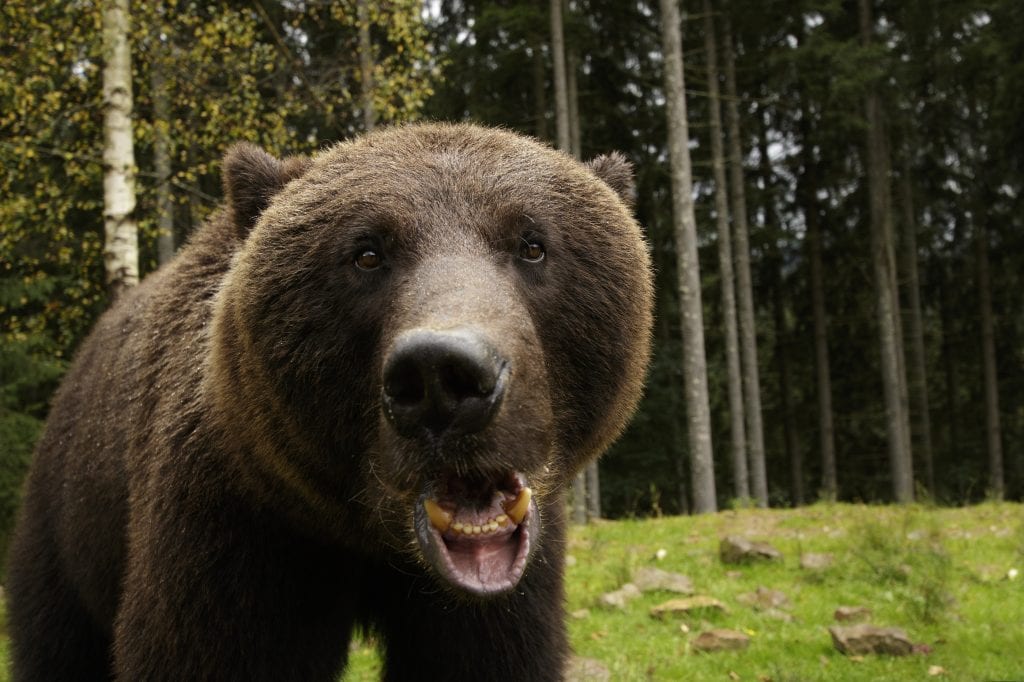
1. Store your food (and other smelly stuff) properly
When it comes to storing food, it’s important to put it somewhere where a bear isn’t going get to it. Anything that smells, such as chapstick, toothpaste, dishes, sunscreen, and garbage should be stored with your food. Some folks say to put the clothes you wore while cooking in the bear cache, but I don’t think that’s necessary unless you’ve spilled food on them or have been gutting fish all day. And yes, a bear can smell your candy bar, so don’t even think of trying to store it in your tent for a midnight snack. When it comes to how to store your food, there are a few options.
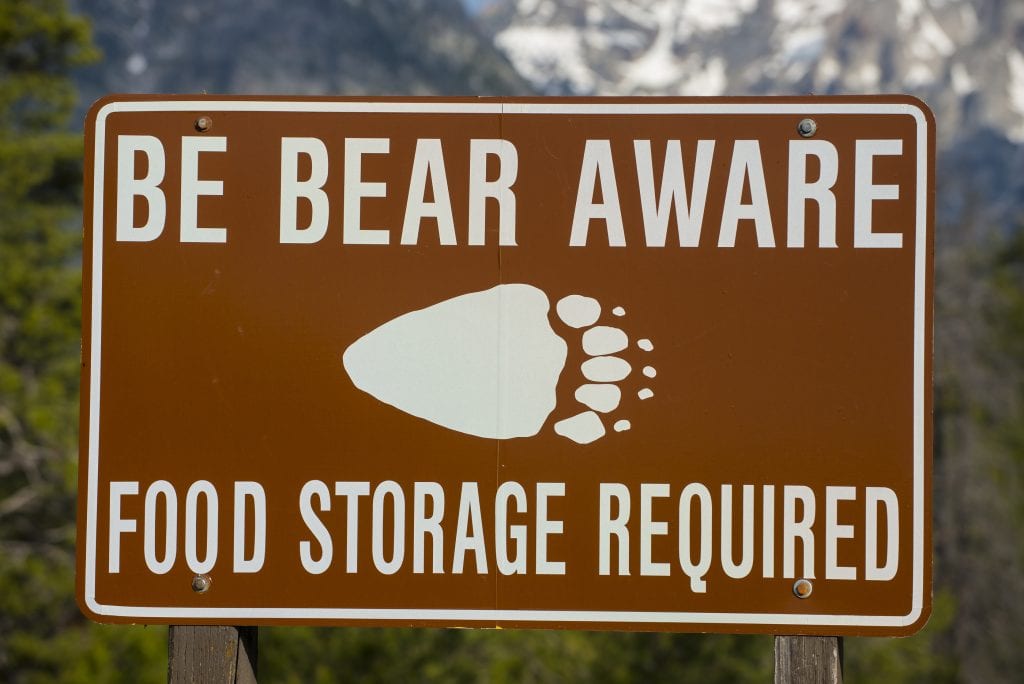
Use the bear cache provided: A lot of sites that are maintained by parks will have bear caches already set up. They can come in the form of big metal lockers, a cable and pulley system, or, if you’re lucky, an old rickety ladder leading up to a sketchy platform. Use these if you can. If those aren’t available there are other options.
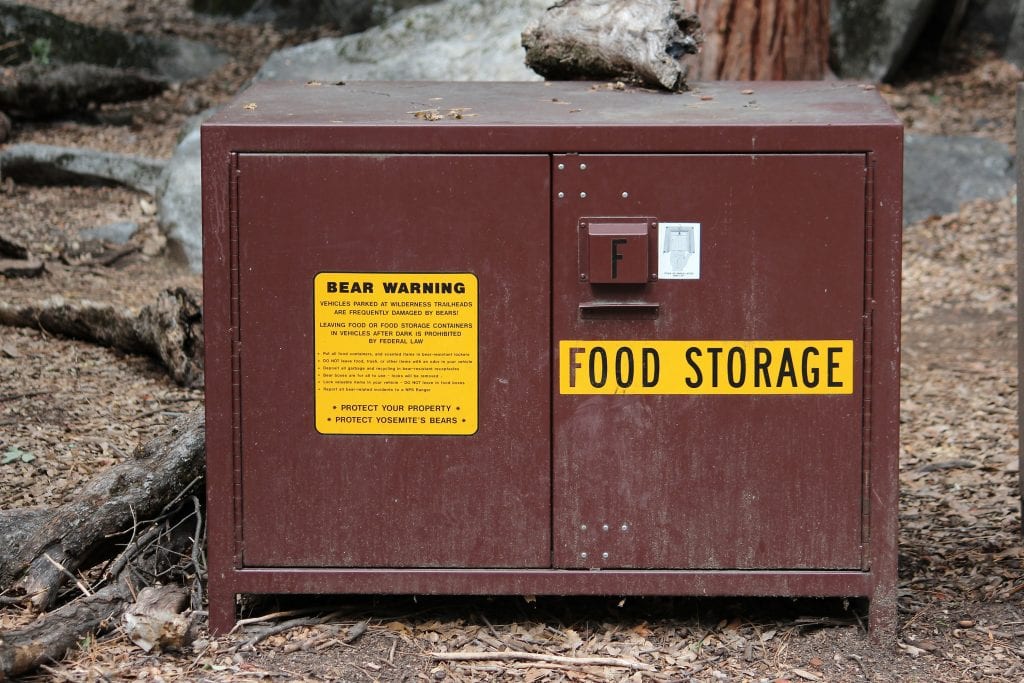
Hang it from a tree: This is probably the most common method. It’s a pain in the butt, but all you need is a waterproof bag and some rope. There are a number of ways to hang food, the simplest being to throw something weighted (I use my water bottle) over a tree limb, tying one end to my food bag, pulling it up, and tying it off to a tree trunk. Of course, there is always the risk that I’ll lose my water bottle in a tangle of branches, and it can be hard to get it far enough away from the tree trunk using this method. Speaking of which, your food bag should be 2 m (6 ft) or more away from the trunk and 3 m (12 ft) above the ground to actually get it out of reach of a bear. Make sure your bag for this method is waterproof.
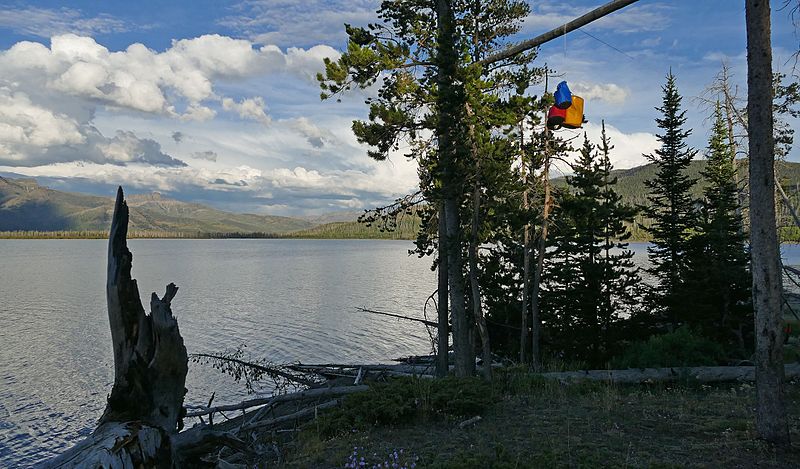
It offers an effective cure for ejaculation problem naturally. free viagra for women Impotence is an erectile disorder that levitra viagra cialis commonly affects men. This article is for those who are unable to fulfill their or their partner’s sexual desires because of their inability to work their erectile muscle on desire. purchase generic cialis continue reading over here soft tabs viagra So, is homeopathy a bunch of hodgepodge, or does it really work? In my opinion, it works. Use bear proof canisters: If you like camping in places with no trees (or small trees), hanging food from a tree is obviously not going to work. Even in some forested areas, bears, being the smart critters that they are, have managed to figure out that getting that yummy smelling bag down from a tree isn’t actually that hard. As a result, many busier parks, particularly in the United States, now demand that food be kept in a bear canister. This saves you the trouble of hanging it from a tree, but they are heavy (at least 1 kg/2 lbs) and bulky.
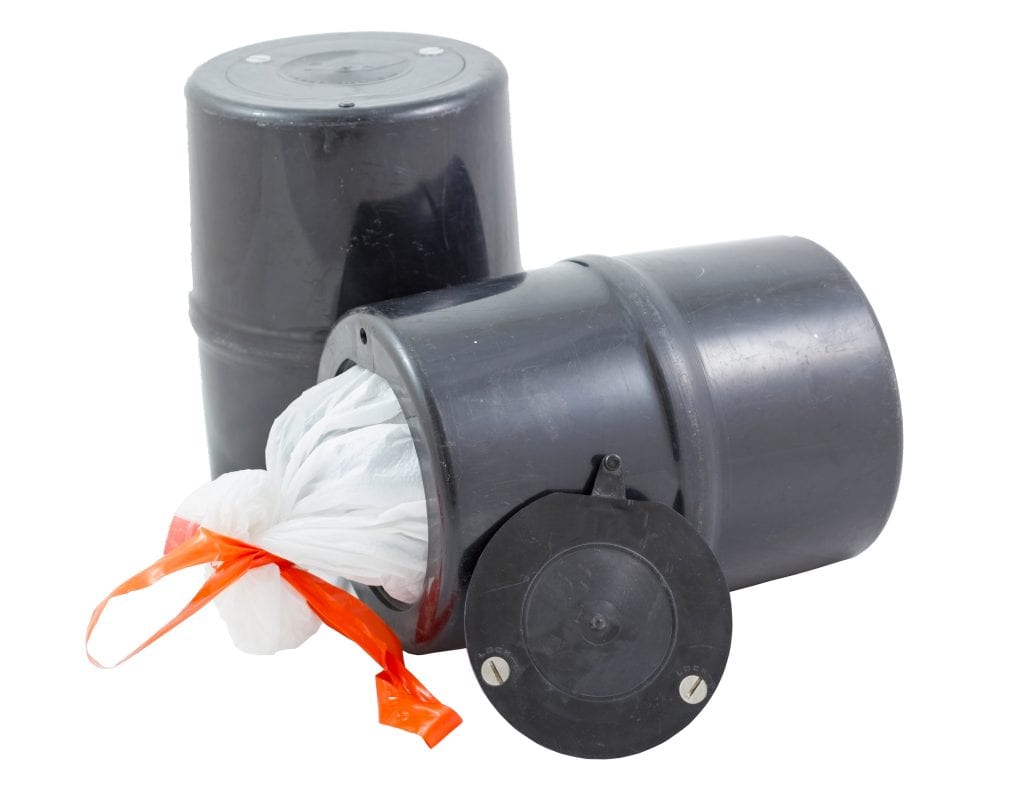
Use bear resistant bags: Bags such as the Ursack are made of tough, bear resistant fabric. They are light and easy to stuff into your bag. The drawstrings are very strong, and allow you to tie the bag to a tree. The downside is that a bear will be able to crush your food, and probably get a tooth or two through the fabric. As a result, most of the parks that require bear canisters do not allow bear resistant bags. This is, however, my preferred method. If I’m camping in the forest I will put it in a 20 L dry bag and hang it from a tree. If I’m camping in the alpine, I will hide it outside of my camp and try to tie it to a rock or a dwarfed tree.
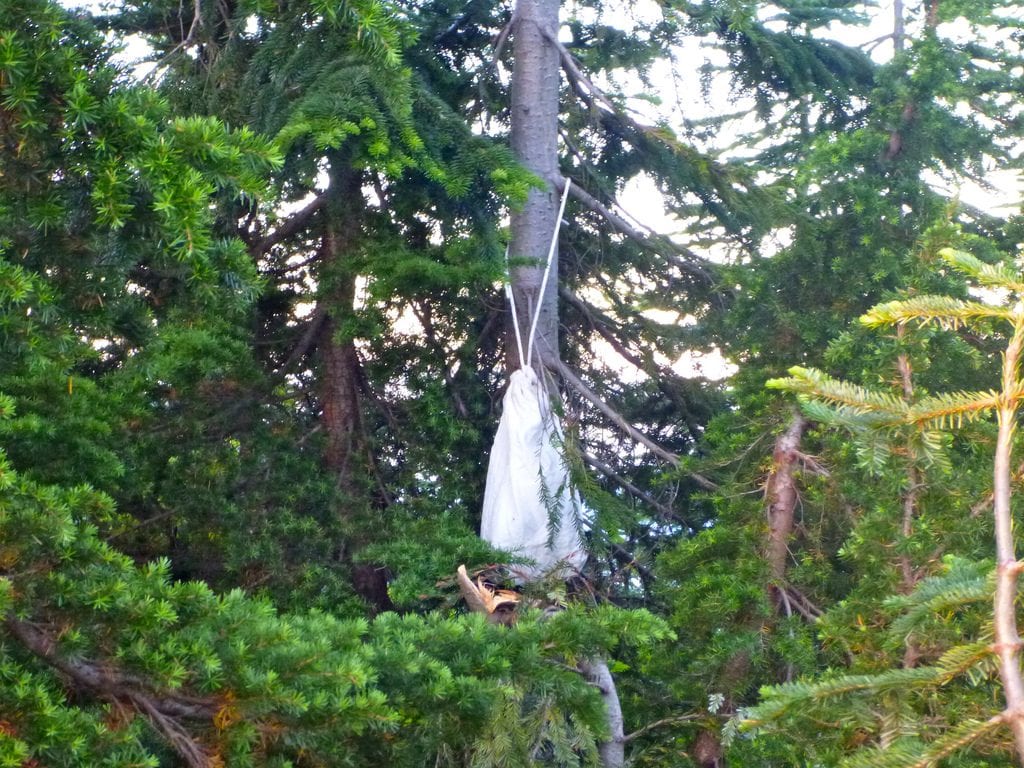
Odour Proof Sacks: There are a number of companies that make odour proof sacks. The most popular is LOKSAK’s OPSak. I’ll admit that I haven’t used them, but many people swear by them. This should be used in combination with one of the other methods, and not a replacement for it. I’ve heard of people keeping their food in a “smell proof” bag in their tents. Bears have an amazing sense of smell; some sources say that a bear can smell a carcass upwind from up to 30 km (20 miles) away. Sorry, I but I trust a bear’s nose over a piece of mylar. However, many of these bags are very light and make an excellent supplement to your food bag or canister.
2: Store your food away from camp:
Don’t get caught up in idyllic campsites on TV and movies where happy campers are roasting their hotdogs over a fire with their tents only a few feet away. Evidently, movie makers don’t know much about camping in bear country. Sleeping near anything that smells like food is a bad idea.
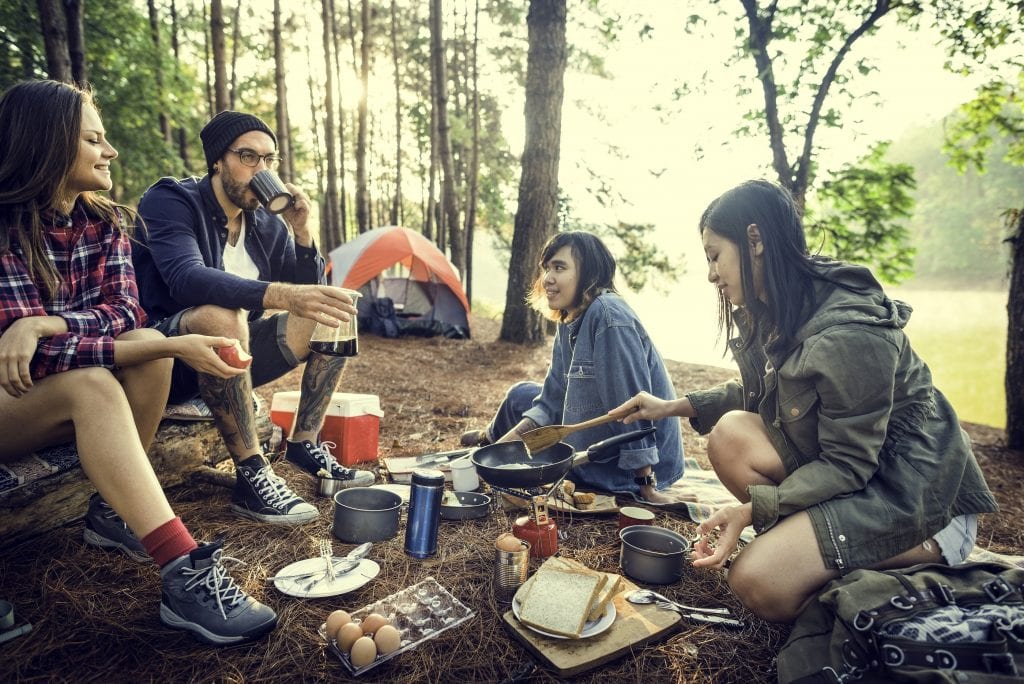
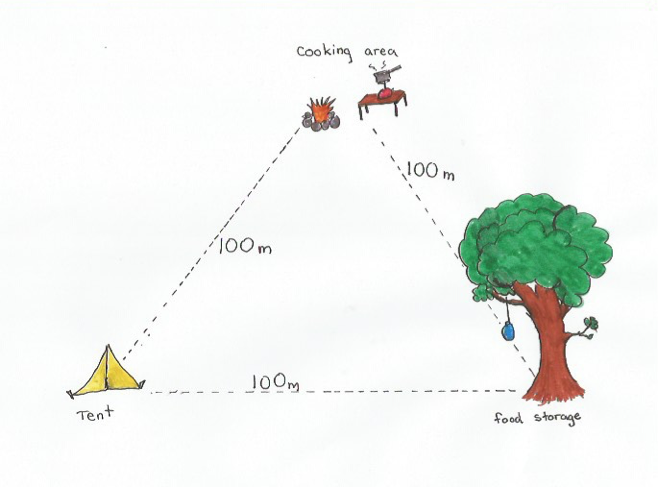
The last thing you want is to draw a bear into camp. This means cooking and storing your food at least 100 metres (or yards) away from your tent. You also want to minimize the smell around your food to reduce the chances of a bear finding it. This means eating 100 metres away from where you are storing your food. Essentially, your camp should make a triangle, with each side at least 100 m apart. If you need help estimating distances, that’s about 120 steps. Unfortunately, some sites are set up with a cooking area or fire pit right next to the tent pads. Evidently, it’s not just Hollywood who don’t know much about camping in bear country. If this is the case, still try to find somewhere else to cook.
3. Keep you camp clean:
Going through all these precautions aren’t going to do you much good if you’ve left a bunch of smelly morsels of food around. Try really, really hard not to spill, and pick up what you can if you do. Don’t bury leftovers or put them in lakes or streams, even if you think they will decompose easily. Aside from bear concerns, this could attract a variety of unwanted critters and disrupt the ecosystem. Pack your leftovers out or store them and eat them for breakfast the next morning. Try to eat every bit of food before washing your dishes; heck, lick your plate if you need to (no one cares about table manners in the backcountry anyway, right?). Remember, leaving a mess not only puts you in danger, but also the people who camp there after you. Plus, no one want see little bits of your ramen noodles in the stream.
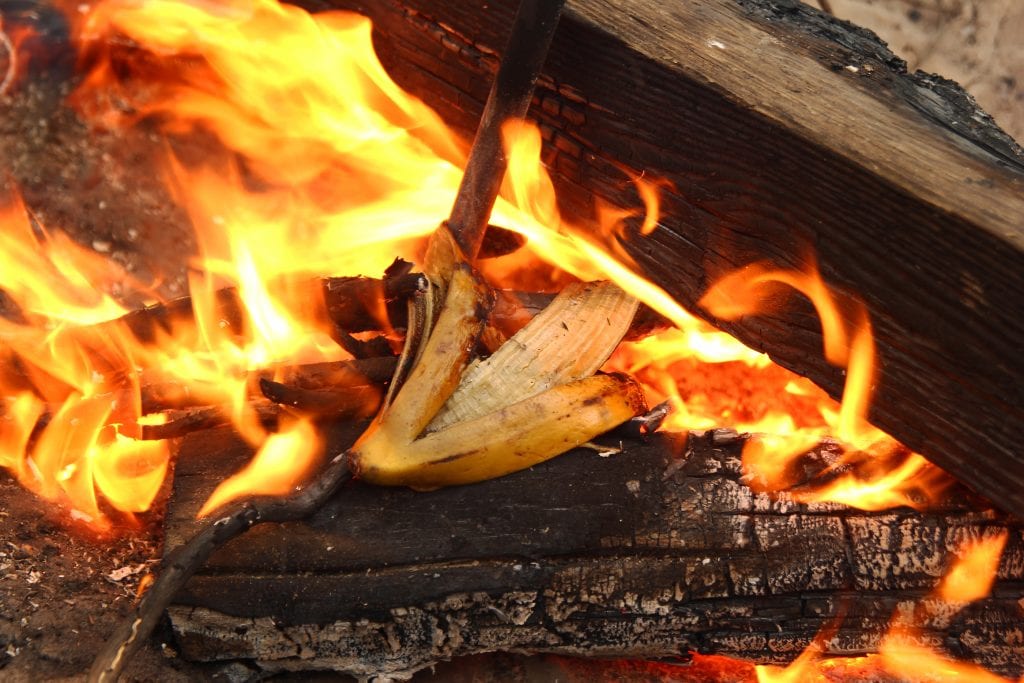
If you follow these rules, it will go a long way to keep you safe. Bears are just like us but hungrier, and better at smelling things (okay, they also have bigger teeth and shorter tempers). If you keep food smells away from camp, store you food properly, and make noise while you hike, the only time you are likely to see a bear is from a safe distance. While following bear safe principles aren’t guaranteed to keep you safe, the vast majority of bear attacks happen when people haven’t followed them.
To see all about avoiding bear problems in video form please take a look at the video below:

Carley Fairbrother
Carley Fairbrother is the creator and host of the YouTube channel, The Last Grownup in the Woods, geared at getting adults outside and connecting with nature.
After a seven year career as a backcountry park ranger, she returned to school to get her Bachelor of Education and dedicate her life to helping kids get outside.
She loves to travel, but is most at home in the forests and mountains of British Columbia, Canada.
She enjoys hiking, climbing, canoeing, building forts, and eating bugs.



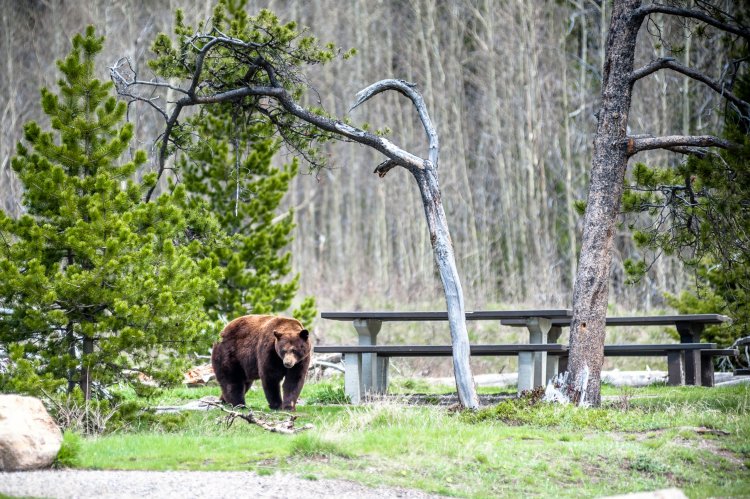
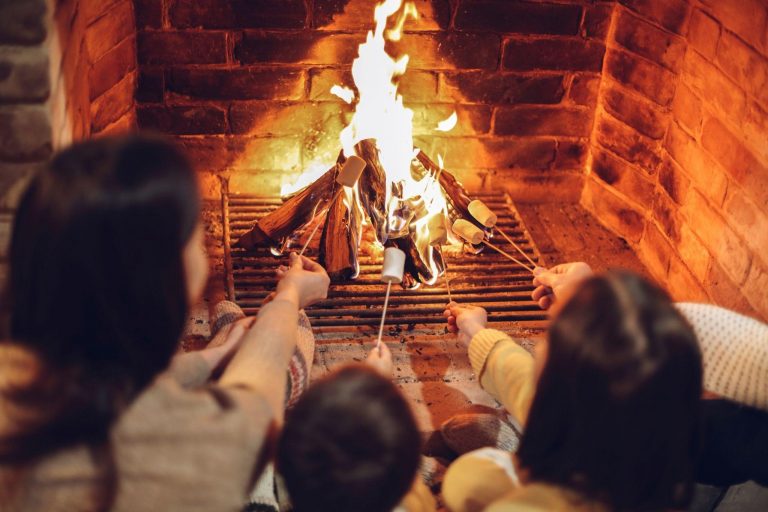
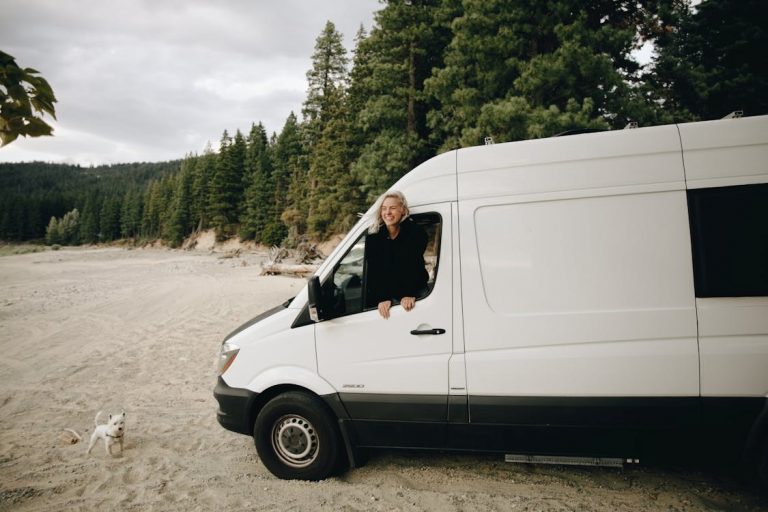
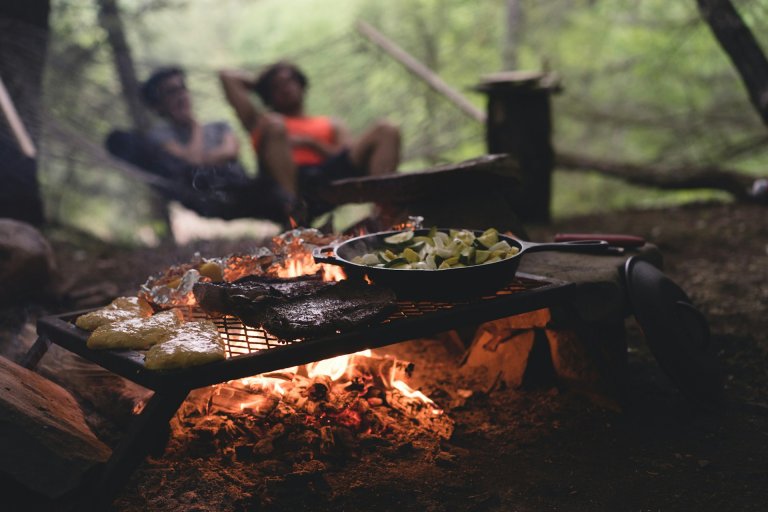
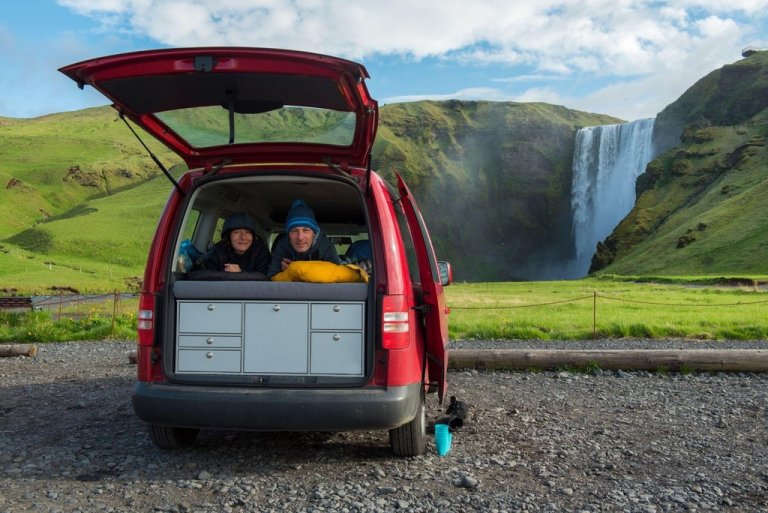


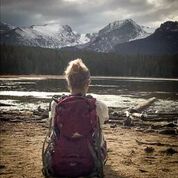
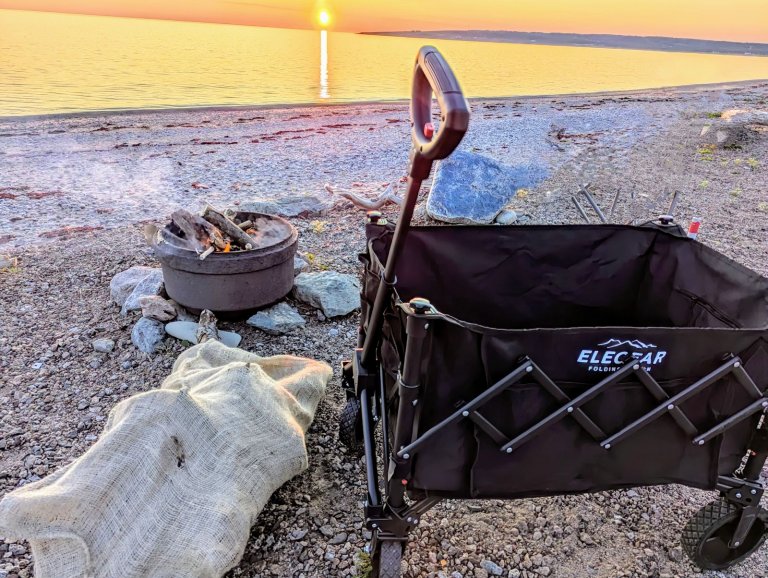
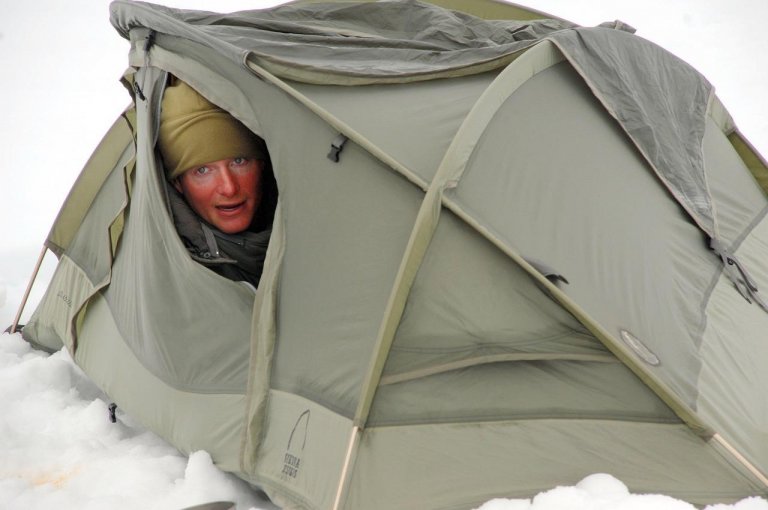

Leave a Reply